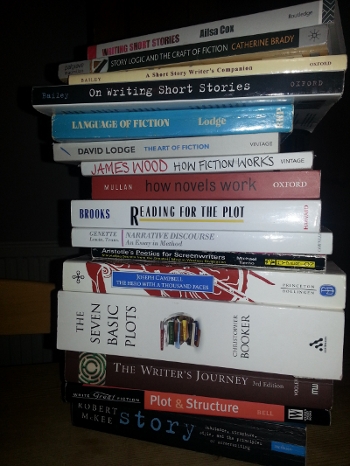 I love the way the internet ripples. I’m not sure if a post on a topic in one blog prompts another, or a mysterious primal force drives people to discuss the same thing at more or less the same time. Whatever the cause, over the last week or two I noticed three interesting posts on outlining.
I love the way the internet ripples. I’m not sure if a post on a topic in one blog prompts another, or a mysterious primal force drives people to discuss the same thing at more or less the same time. Whatever the cause, over the last week or two I noticed three interesting posts on outlining.
At Mystery Writing is Murder, Mitzi Kelly is conflicted. She’s a natural organic writer (I refuse to use the P-word), but has reluctantly embraced outlining.
“So I’ve had some outlining background. And I always hated coming up with these outlines. But—I never ran into story issues when I’ve outlined. I might go off my outline, but I never end up with a huge plot hole, a mess of a beginning, or a poorly paced book.”
Chuck Wendig is always undogmatic (“Nobody’s making you outline. Relax”) and pleasantly sweary, but he’s pretty much in favour too, as his 25 Things You Should Know About Outlining attests
“Plot is a twisty motherfucker. It loops around on itself and before you know it, the thing’s crass contortions have left you with plot holes so big you could lose a horse in one. An outline is an excellent tool for hunting down those pesky voids and vacancies early so you can cinch the plot tighter in order for those holes to close up — or, at least, can remain hidden from view. An outline fixes your plot problems before you have 80,000 words of them staring you down.”
Incidentally if you do decide to outline, then Chuck also offers 25 Ways To Plot, Plan and Prep Your Story.
At Magical Words Carrie Ryan has consumed the outlining Kool-aid and moved on to look at outlining methodolgy. She recommends a plot structure chart she has adapted from the always excellent Alexandra Sokolov. This looks like an interesting approach for plot-driven narratives, and reminds me a little of Larry Brooks’ formulation (summarised elsewhere on this site)
This subject interests me in particular because I’m finally beginning serious work on a novel (up til now I’ve been mostly focused on short stories because they fit so well into the Creative Writing MA workshop structure). I’ve been reminding myself of the planning methodologies out there. I’m currently reading Outlining Your Novel by K.M Weiland and also returning to more philosophical sources (expect a post on Aristotle’s Poetics for fiction writers in the coming weeks).
And will I outline? Probably, yes, to some extent. Though, no doubt, as soon I start writing the plan will go by the board and I’ll find myself once again making it up as I go along.




